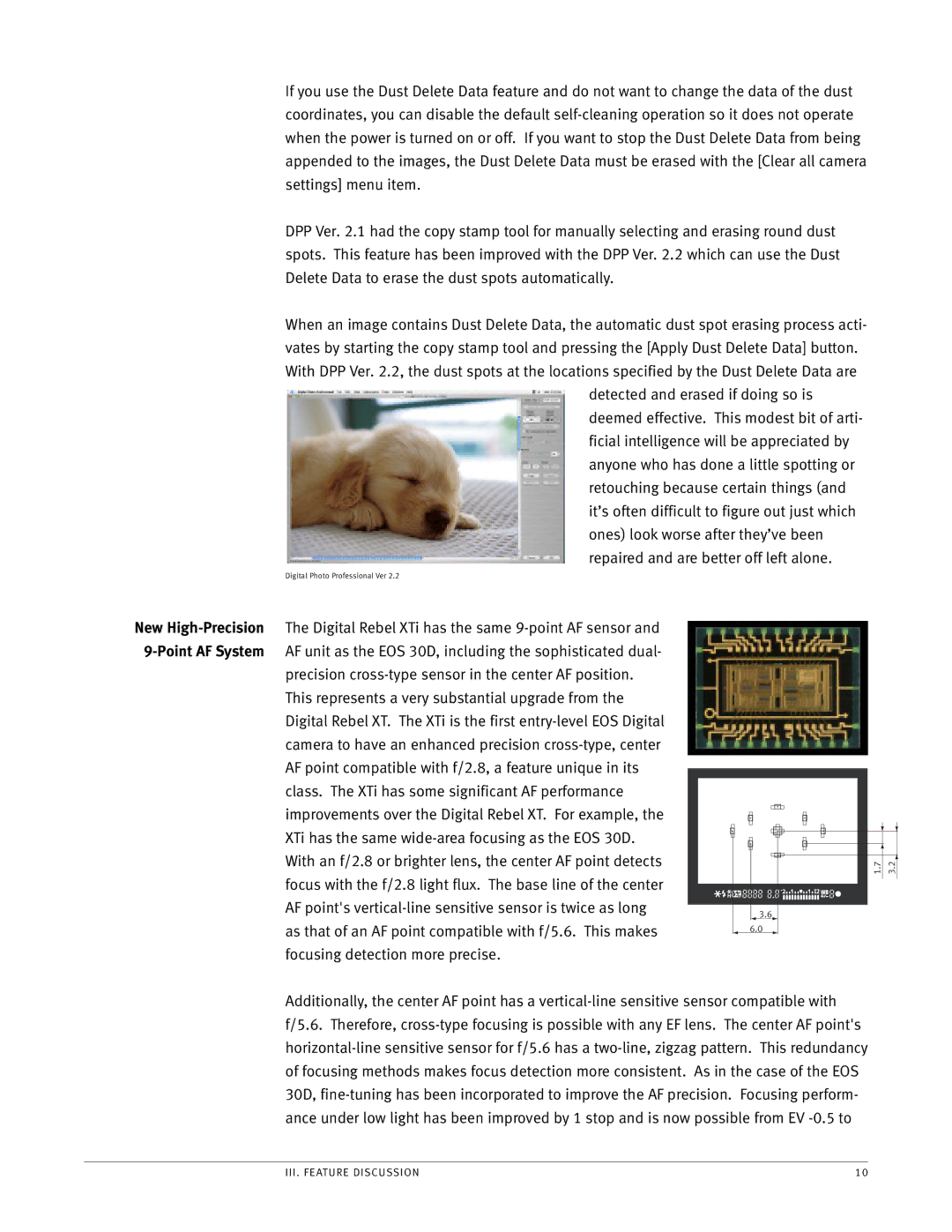
If you use the Dust Delete Data feature and do not want to change the data of the dust coordinates, you can disable the default self-cleaning operation so it does not operate when the power is turned on or off. If you want to stop the Dust Delete Data from being appended to the images, the Dust Delete Data must be erased with the [Clear all camera settings] menu item.
DPP Ver. 2.1 had the copy stamp tool for manually selecting and erasing round dust spots. This feature has been improved with the DPP Ver. 2.2 which can use the Dust Delete Data to erase the dust spots automatically.
When an image contains Dust Delete Data, the automatic dust spot erasing process acti- vates by starting the copy stamp tool and pressing the [Apply Dust Delete Data] button. With DPP Ver. 2.2, the dust spots at the locations specified by the Dust Delete Data are
detected and erased if doing so is deemed effective. This modest bit of arti- ficial intelligence will be appreciated by anyone who has done a little spotting or retouching because certain things (and it’s often difficult to figure out just which ones) look worse after they’ve been repaired and are better off left alone.
Digital Photo Professional Ver 2.2
New High-Precision
9-Point AF System
The Digital Rebel XTi has the same 9-point AF sensor and AF unit as the EOS 30D, including the sophisticated dual- precision cross-type sensor in the center AF position.
This represents a very substantial upgrade from the Digital Rebel XT. The XTi is the first entry-level EOS Digital camera to have an enhanced precision cross-type, center AF point compatible with f/2.8, a feature unique in its class. The XTi has some significant AF performance improvements over the Digital Rebel XT. For example, the XTi has the same wide-area focusing as the EOS 30D. With an f/2.8 or brighter lens, the center AF point detects focus with the f/2.8 light flux. The base line of the center AF point's vertical-line sensitive sensor is twice as long as that of an AF point compatible with f/5.6. This makes focusing detection more precise.
Additionally, the center AF point has a vertical-line sensitive sensor compatible with f/5.6. Therefore, cross-type focusing is possible with any EF lens. The center AF point's horizontal-line sensitive sensor for f/5.6 has a two-line, zigzag pattern. This redundancy of focusing methods makes focus detection more consistent. As in the case of the EOS 30D, fine-tuning has been incorporated to improve the AF precision. Focusing perform- ance under low light has been improved by 1 stop and is now possible from EV -0.5 to
III. FEATURE DISCUSSION | 10 |

